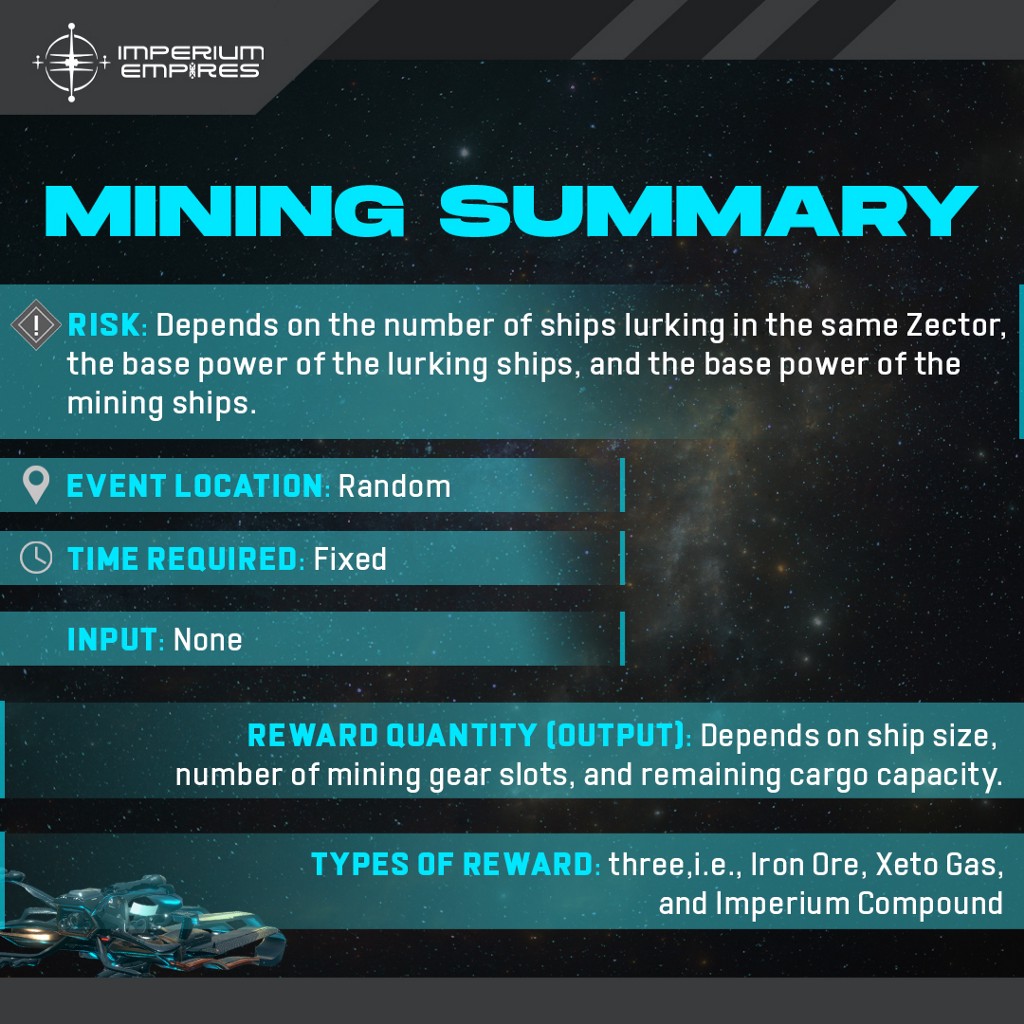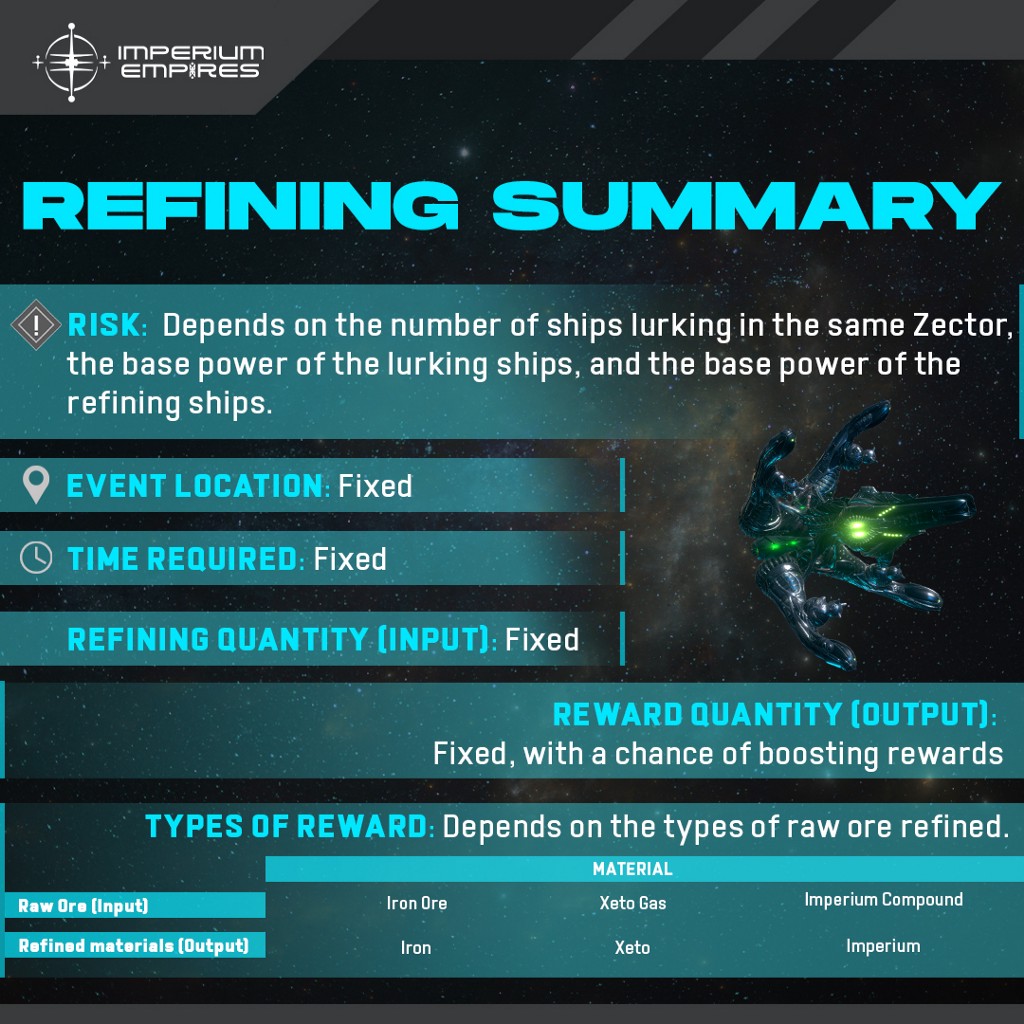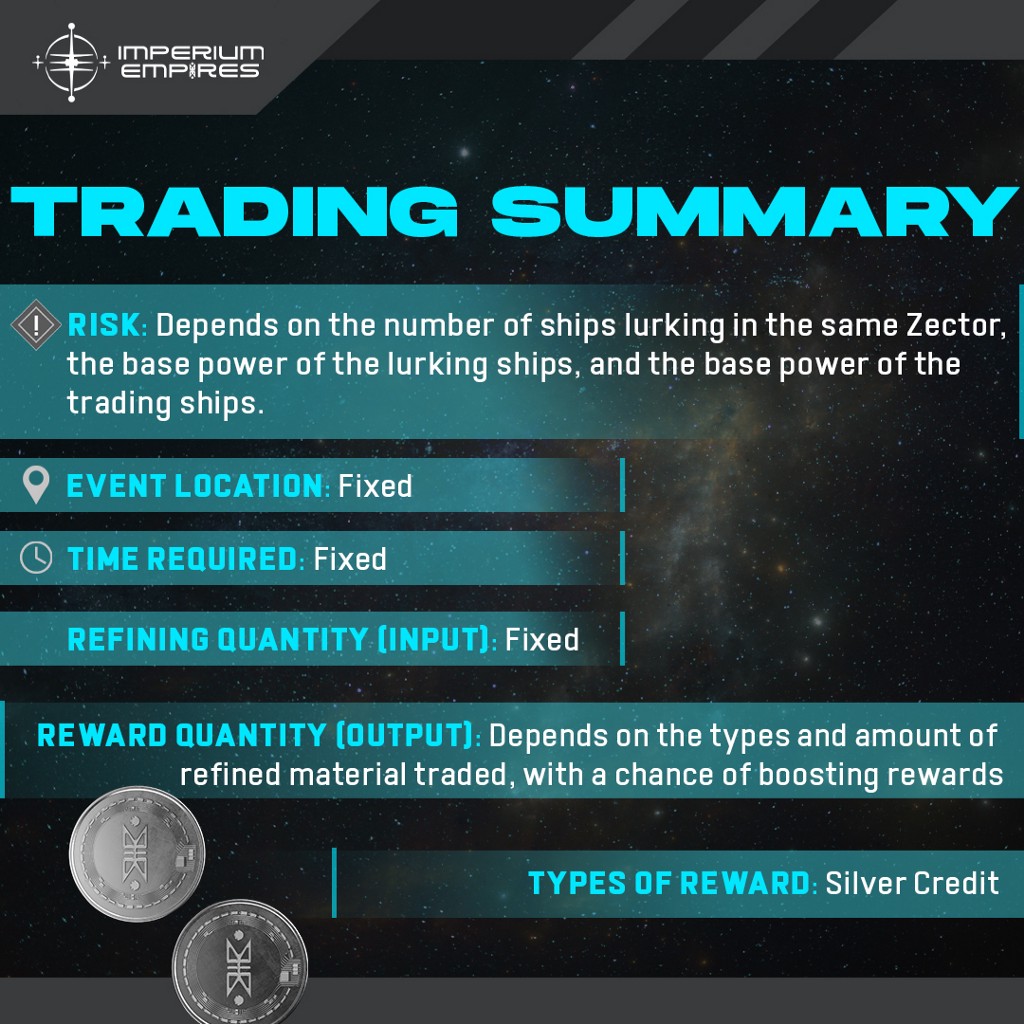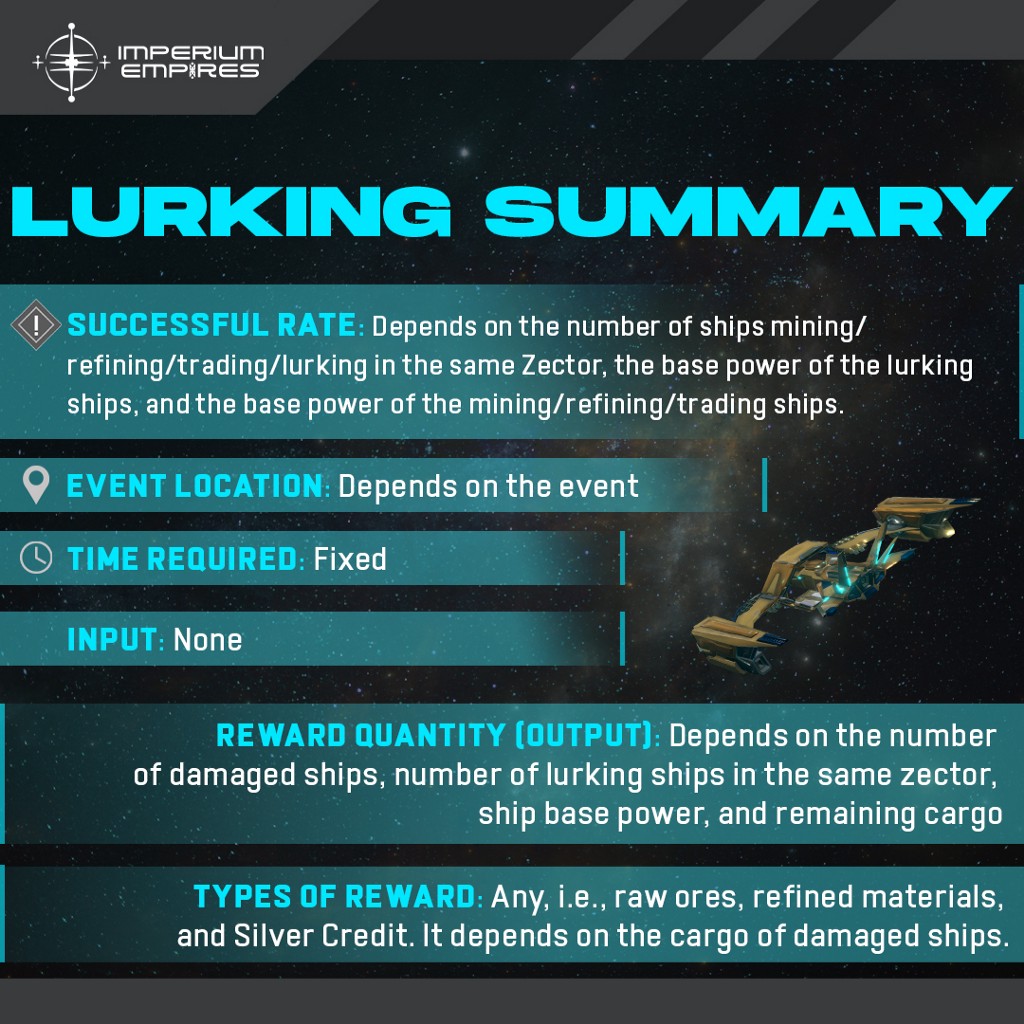Apollo: Game Mechanism (Part 3)
To prepare for our upcoming Apollo game launch, we will be covering some game mechanisms in this article. If this happens to be your first time learning about Apollo, please read Apollo Overview, Game Mechanism (Part 1), and Game Mechanism (Part 2) first.
There will be a series of articles about the Apollo game mechanics. In this Part 3 of the series, we will be covering some features relating to:
- Gameplay Flow
- Summary of each Action
* Please note that images in the article are WIP and are for illustrative purposes only. They do not represent the final product that will be launched. This includes numerical values such as duration and coordinates.*
Gameplay Flow
Each player’s L-IMC earning is determined by their Silver Credit holdings weighted by the total number of Silver Credits held by all players in Apollo.
To get Silver Credits, players mainly have two routes, i.e., mining or lurking. Players can adopt and mix both strategies depending on their playstyles and spaceship collections. Each of the two routes have their pros and cons; players must be adaptive to maximize their efficiencies.
Mining Route:
Pros: Stable and higher rewards for fleets with bigger cargo size if players pick the right Zectors to mine.
Cons: Potential risks of getting lurked by other players, having ships damaged and losing cargos.
Lurking Route:
Pros: Lower risks because lurking ships will not be damaged.
Cons: Lower efficiencies unless the player picks a suitable lurking Zector based on other players’ activities and locations. No rewards if there is no mining/refining/trading fleet in the Zector.
Flow of Mining route
- Mine raw ores from Zectors with mining sites
- Carry the raw ores (as cargos) and travel to “Refineries” to refine raw ores to refined materials
- Carry the refined materials (as cargos) and travel to “Trade Houses” to trade their refined materials into Silver Credits
Mine raw ores from mining sites
Players can mine raw ores from Zectors with mining sites. Mining sites are randomly generated in different Zectors from time to time. Each mining site has a maximum quantity of ore during a fixed period of time (e.g. 24 hours). Players have to use any fleets to travel to the mining sites and start mining before the sites run out of ores.
The time required in mining is fixed. The quantity of ore received by the spaceships depends on ship sizes and the number of mining gear slots. Note that the number of ores mined cannot exceed the spaceships’ remaining capacities. Once mining is completed, the mined ores will be stored in the cargo areas of the spaceships.
There are three types of ore, i.e., Iron Ore, Xeto Gas, and Imperium Compound in the first season of Apollo. Iron Ore is the most common raw ore, while Imperium Compound is the rarest. Only one type of ore can be mined from each mining site.

Travel to “Refineries” to refine raw ores into refined materials
Players need to order their fleets to travel to Zectors with refineries, and refine raw ores into refined materials. The Zector location of refineries and the time needed to refine are fixed. There are multiple types of refineries and each type of refinery can only refine one type of raw ores.
To use a refinery, your fleet has to meet the refinery’s refining quantity requirement (e.g. minimum of 1,000 iron ores). The output quantity of refined materials (as rewards) depends on the input refining quantity, with a chance of boosting the rewards by luck.

Travel to “Trade House” to trade their refined materials into Silver Credit
Similar to refining, players need to have their fleets travel to Zectors with Trade Houses to convert their refined materials (i.e., Iron, Xeto, and Imperium) into Silver Credits. The Zector location of Trade Houses and the time needed to trade are fixed. There are multiple types of Trade Houses, and each Trade House can only trade one type of refined materials.
To use a trade house, your fleet has to meet the trade house’s trading quantity requirement (e.g. minimum of 1,000 iron). The output quantity of silver credits (as rewards) depends on the amount of input refined materials, with a chance of boosting the rewards by luck. Refined materials with a higher rarity (i.e. Imperium) have a better conversion rate.

Tips for Mining Route
- It is ideal for your fleet to mine, refine and trade in the same trip. However, each fleet’s fuels are limited, and your fleet slows down in traveling time if fuels run out. Therefore it makes sense to do more docking between trips to refuel your fleets and reorganize your inventories.
- If you have multiple fleets, it may be better to let one fleet handle one type of action. When you have collected raw ores, you can first unload and store them in your inventory through docking. When there are enough raw ores, assign one of your fleet to load/pick up the raw ores from the dock, travel to refineries for refining.
- Spaceship fleets with higher cargo capacities can mine multiple times to maximize their capacities before docking. Use higher base power spaceship fleets to travel to trade houses to decrease the chance of Silver Credits getting lurked.
Flow of Lurking Route
- Analyze and pick a good Zector based on other players’ activities and locations.
- Travel to your target Zector and Lurk
- Follow-up actions depend on which type of rewards you earned from lurking.
Analyze and pick a good Zector based on other players’ activities and locations.
Lurking players have to figure out which Zector is the best location to lurk. Here is a list of criteria for a Zector to be considered as a good lurking spot.
- Convenient location that most players can access in a short travel time.
- Not many other lurking fleets — less competition means less players to share the pool of lurking rewards.
- There is a large number of ships mining/refining/trading in the Zector.
- Your fleet has a base power advantage.
Travel to your target Zector and Lurk
Before traveling to any Zector, you should always consider the things below.
- Traveling distance and time
- Remaining fuel of your fleets
- The nearest dock for your fleets to refuel
In multiplayer games like Apollo, there are always uncertainties due to actions taken by other players, so sometimes it is better to adapt and change your plan.
For example, if it takes a long time for your lurking fleet to travel to a Zector, it’s possible that most of the mining/refining/trading fleets in the Zector would have left by the time your fleet arrives, so it may be better not to lurk and save your time.

Follow-up actions depend on which type of rewards you earned from lurking.
After a successful lurking, there are mainly 3 types of rewards. They are (1) raw ores; (2) refined materials; and (3) Silver Credits.
Silver Credits are the best you can get from lurking. If your fleet still has enough fuel and cargo capacity, it makes sense to continue lurking in the same Zector, or travel to another good Zector to lurk.
However, if your lurking fleets’ cargos are already full you should dock and unload the cargos if you have other fleets for refining/trading. The refining/trading fleets could pick up the cargo in another dock to refine/trade more efficiently.

